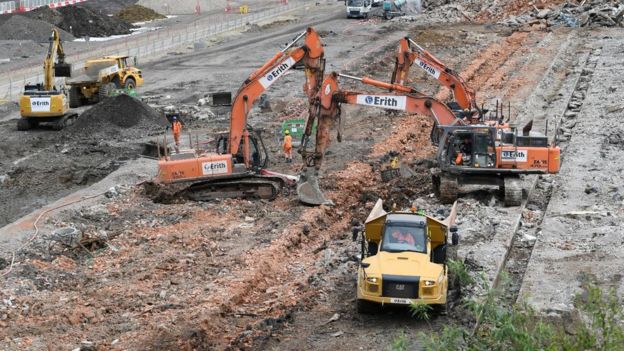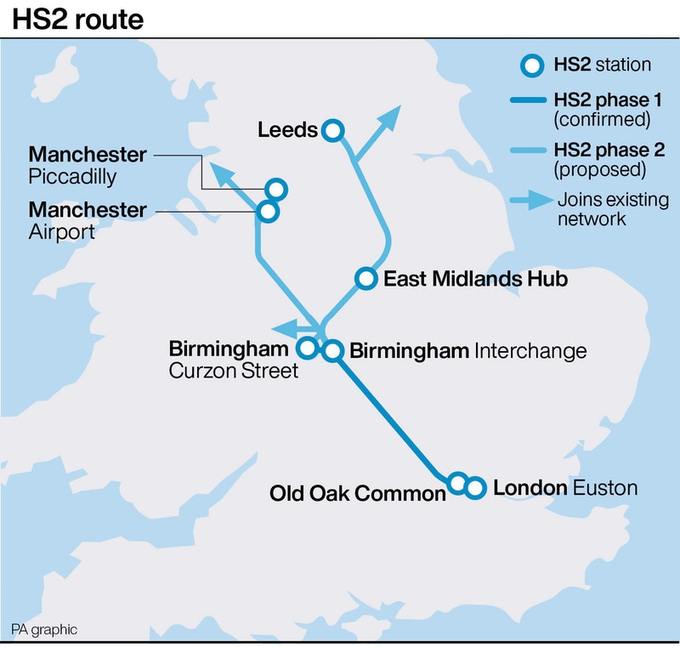A report by The Wildlife Trust has warned that HS2 could threaten irreplaceable natural habitats, heaping more pressure on the project to be abandoned.
Several delays, £7.5bn already spent and now this week a harrowing report from The Wildlife Trust warning of the damning and irreplaceable environmental impacts of HS2.
As the prospects of the high speed rail line linking London and northern England suffer heavier and more severe criticism, the question of alternatives to the project or even a complete U-turn have to be asked. As the report reveals, we risk the destruction of 693 local wildlife sites, 108 ancient woodlands and the threat of extinction of endangered species if it continues to go ahead. Though the report concedes that the project includes a construction of a ‘green corridor’, it states it is nowhere near ambitious or adequate enough to offset the damage.
Time to rethink?
In a time of global environmental concern, the report from the The Wildlife Trust is not to be overlooked or undermined. The report is a collection of findings from 14 local trusts affected by the plans in what the Wildlife Trust has called the “most comprehensive” assessment of HS2’s environmental impact. Certainly compared to improving existing lines, HS2 does not come out well.
Most alarming on the report is the threat to rare and endangered species such as the Dingy Skipper Butterfly and the White Claw Crayfish in some local habitats. Yet with that revealed, not to mention threats to protected wildlife sites, HS2 Ltd have labelled the reports’ risks as “simply inaccurate”. They also stated “By providing a cleaner, greener way to travel, HS2 will help cut the number of cars and lorries on our roads, cut demand for domestic flights, and help the country’s fight against climate change.”
The complete dismissal of the report is a strong sign of the relentless delusion anti-HS2 protesters have accused of their opponents. Since the announcement to build HS2 was made in 2012, its progress has been anything but smooth sailing. Initially estimated to cost £33bn, this figure was increased to £55bn in 2015. Most recently in September 2019, Transport Minster Grant Snapps advised this figure could rise further to around £88bn, an eye-watering £26bn over budget.
The aim of HS2 is to improve rail links between London and the North of England, reduce congestion on the commute and increase investment to the Midlands and North of England to combat regional inequality.
However, no harsher critic to HS2 has come than that from the deputy chairman of the HS2 review panel, Lord Berkeley. He has said that the “benefits are overstated and the costs are out of control.”

There may be truth in Lord Berkeley’s comments. HS2 is one of Britain’s largest infrastructure projects in decades and it’s no secret that it’s been riddled with controversy and challenge that has created great scepticism around whether the benefits truly outweigh the costs.
The loudest and most vocal supporters of HS2 have unsurprisingly and understandably been business leaders from Midlands and North of England. Desperate for investment and sick of regional inequality between the North and the South, business heads North of London are frothing at the mouth upon talk of a HS2 abandonment.
Unfortunately for these supporters, the CBI regional heads included, hunger for investment and improved rail services in the North have come at the cost of critical reasoning around the damaging realities of HS2. Compiled with this is the government’s unwillingness to concede that, after some evaluation, the full completion of HS2 may not be in the country’s best interests. Granted it’s an egg on the face moment but it’s certainly better than the dangerous do or die attitude that could pose irreversible environmental impacts – not to mention the ever rising cost.
Additionally, after leaving the independent Oakervee HS2 Review (set up by the government) in October due to disagreeing with it’s position to go ahead in full, Lord Berkeley has released his own report independently. In it the civil engineer, who also worked on the Channel Tunnel, described HS2 as a “wrong and expensive solution”. He proposed an alternative to HS2 only building part of the line and upgrading existing train services in the midlands and north of England, saving project costs of £50bn.
The show must go on
In response to the The Wildlife Trust, HS2 Ltd have reminded the critics of their planned ‘green corridor’ which has already identified at risk areas listed in the report. In addition, they’ve said they plan to plant millions of trees of along the line, and ultimately there will be “no net loss to biodiversity.”
That said, HS2 promoters see no reason why the line should be abandoned. Indeed, business heads in the midlands and north of England have argued that there are no credible HS2 alternatives to unlock the growth in the North and Midlands.
Phase 1 of the line which is planned to run from London to Birmingham has already been granted Royal Assent as of 2017. Therefore while Phase 2a (West Midlands to Crewe) and 2b (Crewe to Manchester and Birmingham to Leeds) await the same permissions, there should be no reason to cancel the plans.

So much work has already been completed toward HS2: from buying property along the line to the tune of £1.25bn, knocking down buildings to prepare the route from London to Birmingham and even moving thousands of dead bodies underneath the line. With £7.5bn spent already, it’s not a hard sell that the government should see out the task to reap the future benefits of a decreased north south divide.
A recipe for disaster
All things considered, it’s clear HS2 needs serious reevaluation. The issue with HS2’s promise of “no net loss to biodiversity” is that once endangered species are made extinct, there’s no way to recoup them. The same is true for ancient woodlands.
The costs already incurred on this turbulent HS2 journey would be heartbreaking for any taxpayer should the government decide to do a U-turn. However, to see the cost rise past £100bn, as Lord Berkeley has predicted and to see the materialisation of the potential environmental impacts, would be far worse.
The Midlands and the North desperately need investment and doing so to their rail services should be a matter of urgency. The government and HS2 promoters alike must concede that the full completion of the project as it stands may not be the best way to achieve this, when current rail services have stood for decades without proper funding and the impact on wildlife might be too much to bear. Either way, Boris Johnson is expected to make a go/no go decision on the future of the HS2 project next month, at the same time that the full Oakervee review will be made public.


